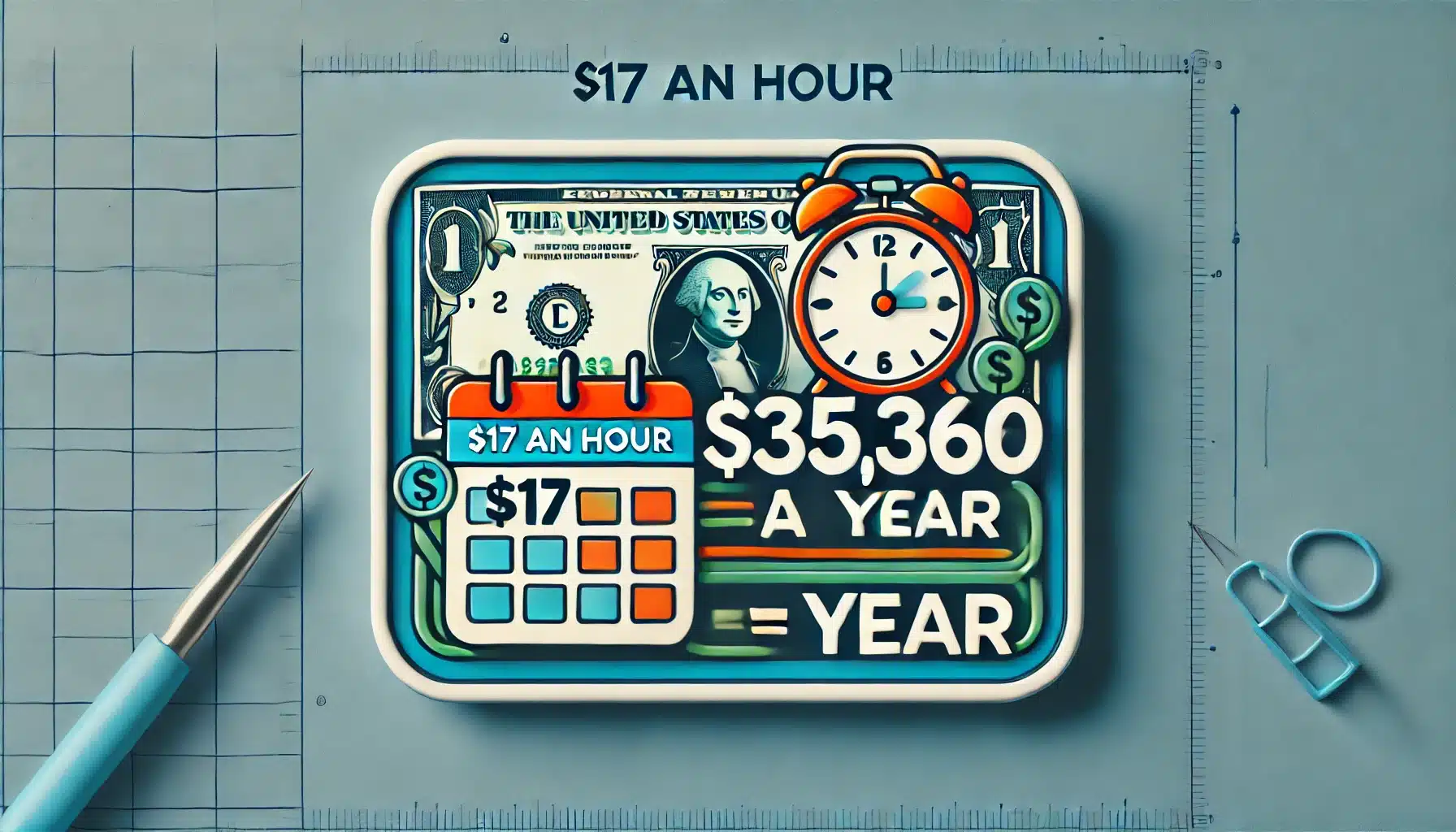$17 an Hour Is How Much a Year? Annual Salary Explained
Understanding how much $17 an hour adds up to annually can help you budget better, plan your finances, and set realistic savings goals. Whether you’re considering a new job, negotiating a raise, or simply curious, breaking down this hourly rate into an annual, monthly, and weekly income provides clarity. In this guide, we’ll explore how much money $17 an hour translates to in a year and offer insights into managing this income effectively.
How Much Money a Year Is $17 an Hour?
If you earn $17 an hour, your annual income depends on the number of hours you work each week and the total weeks you work in a year. Here’s the calculation:
- Full-time work (40 hours per week):
Working 40 hours a week for 52 weeks (including paid time off) totals 2,080 hours per year. At $17 an hour:- $17 x 2,080 = $35,360 per year (before taxes).
- Part-time work (20 hours per week):
If you work 20 hours a week:- $17 x 1,040 = $17,680 per year (before taxes).
Keep in mind that taxes, deductions, and benefits will impact your take-home pay.
Monthly Income at $17 an Hour
Breaking your annual income into monthly amounts gives you a clearer picture for budgeting:
- Full-time (40 hours/week):
- $35,360 ÷ 12 = $2,946 per month before taxes.
- Part-time (20 hours/week):
- $17,680 ÷ 12 = $1,473 per month before taxes.
Weekly and Daily Earnings at $17 an Hour
Understanding your weekly and daily earnings can help with short-term financial planning:
- Full-time (40 hours/week):
- Weekly: $17 x 40 = $680 before taxes.
- Daily (8-hour workday): $17 x 8 = $136 before taxes.
- Part-time (20 hours/week):
- Weekly: $17 x 20 = $340 before taxes.
- Daily (4-hour workday): $17 x 4 = $68 before taxes.
Factors That Impact Your Take-Home Pay
While $17 an hour translates to $35,360 annually for full-time workers, your actual take-home pay depends on:
- Taxes: Federal, state, and local taxes can reduce your earnings by 10-30%, depending on your tax bracket.
- Deductions: Contributions to retirement plans, healthcare premiums, and other benefits will lower your paycheck.
- Overtime: If you work more than 40 hours a week, you may earn overtime pay (typically 1.5 times your hourly rate).
Is $17 an Hour a Livable Wage?
Whether $17 an hour is enough depends on your location, lifestyle, and financial obligations. Here are some considerations:
- Cost of Living: In areas with a lower cost of living, $35,360 a year can cover basic expenses comfortably. However, in high-cost cities, this salary may feel stretched.
- Budgeting: Creating a budget to allocate funds for housing, transportation, food, savings, and entertainment is crucial.
Tips for Managing a $17-an-Hour Salary
Here are actionable steps to make the most of your income:
- Create a Budget:
- Use budgeting tools to track your income and expenses.
- Allocate at least 20% of your income to savings if possible.
- Reduce Expenses:
- Cut unnecessary subscriptions.
- Cook at home instead of dining out frequently.
- Explore Additional Income:
- Take on side gigs or freelance work.
- Upskill for promotions or higher-paying opportunities.
- Plan for Taxes:
- Set aside 20-30% of your income for taxes if you’re not already having them withheld.
Final Words
Earning $17 an hour translates to approximately $35,360 annually for full-time work, offering a solid income for many individuals and families. By understanding your annual, monthly, weekly, and daily earnings, you can make informed financial decisions and plan for a secure future.
If you’re ready to maximize your income, start by creating a budget and exploring ways to increase your earning potential.

